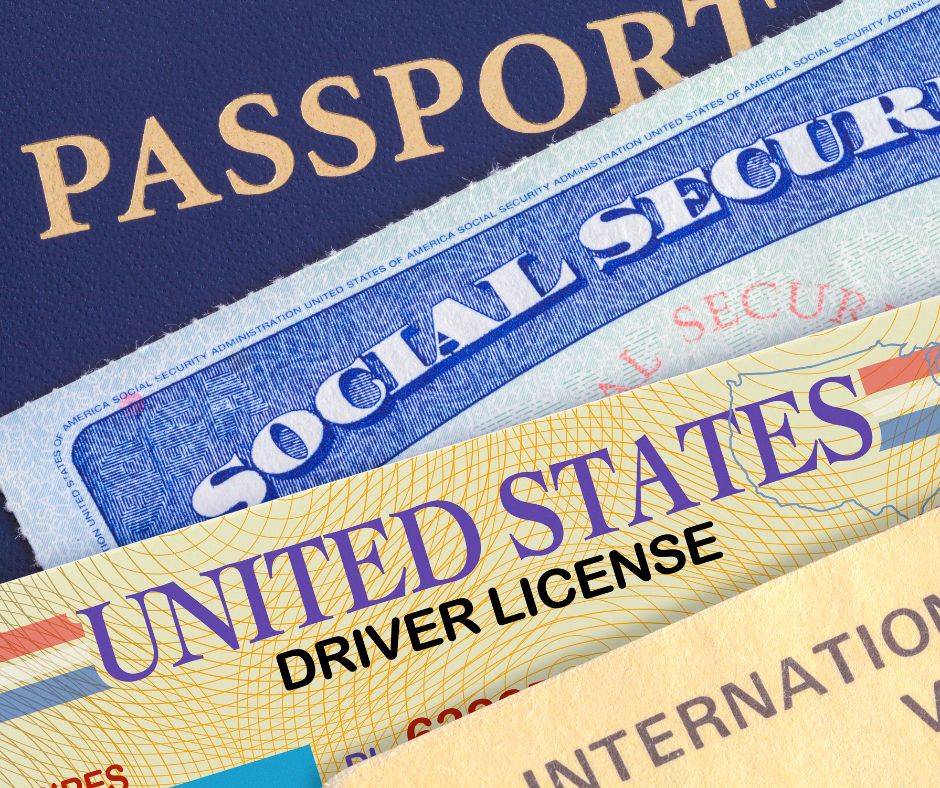You Are Not Your License: Why The State Doesn’t Own Your Identity


It’s your birthday. You’re finally feeling like yourself again after months of stress, heartbreak, or maybe just the grind of being human in a complicated world.
You’re out with your friends, sitting at a bar.
Then comes that familiar phrase: “ID, please.”
You hand over your driver’s license, not thinking twice. But the bartender frowns. “This is expired.”
You blink. So?
You’re clearly over 21. Your face matches the photo. Your name hasn’t changed. But none of that matters. The ID is expired—so as far as the system is concerned, you don’t exist in valid form.
TSA Says You’re Valid—But Only Sometimes
The irony? Just last month, what if you boarded a plane using that same expired ID? The Transportation Security Administration (TSA) likely would have let you through.
Why? Because during the COVID-19 pandemic, the federal government extended leniency. It understood that life doesn’t pause when a date on your license does. The authorities knew that many of us may not have had access to the DMV during the shutdown and restricted hours. For once, common sense prevailed.
So you ask yourself: How is it that I can fly 2,000 miles across the country with this ID, but I can’t get a drink down the street?
What makes you legitimate in one context, and invalid in another?
This is where the illusion of personal freedom begins to crack. Because if your right to move, enter, or be served can be revoked by a date printed on plastic—then your identity isn’t yours. It belongs to the state. You’re being managed, not recognized.
A Bureaucratic Maze to Reclaim Your Own Name
Maybe you’ve dealt with this in even more frustrating ways.
You got divorced and decided to reclaim your last name—your identity before the marriage, the name that felt like you. But the government didn’t see it that way. You had to make appointments, fill out forms, and dig up ancient paperwork.
And then you found out your passport had to match your Social Security card, which had to match your driver’s license, which had to match a piece of mail.
You just wanted to be yourself again—but that required an obstacle course of bureaucracy.
Your own name wasn’t yours to use until they said so.
What’s your political type?
Find out right now by taking The World’s Smallest Political Quiz.
Suspicion by Default: The ID Check While Walking
And what about when you’re just out for a walk—headphones in, feeling peaceful—when a police officer pulls up and asks to see your ID? You weren’t doing anything wrong. You weren’t required to carry identification.
But you know that in this moment, if you say the wrong thing, or say nothing at all, you become the problem. Especially if your skin color, gender presentation, or tone of voice doesn’t fit what they expect.
What happens when your very existence becomes suspicious without documentation?
And here’s the more disturbing truth — this isn’t just about an expired license, a last name, or a request for ID. It’s about power. It’s about who decides you are valid.
What’s the Constitution Say?
The word “identity” doesn’t appear in the U.S. Constitution, but the spirit of identity is woven into it.
The 14th Amendment guarantees equal protection and due process. The courts have interpreted that to include your right to informational privacy and autonomy.
In Doe v. Bolton (1973), the Supreme Court acknowledged the personal right to make decisions about your body and identity.
In Lawrence v. Texas (2003), the Court declared that liberty includes “the autonomy of self”—a broad recognition that you get to define your life, your relationships, your self.
And yet, you’re still asked to prove—again and again—what should be obvious. You are you.
Reflection Questions: A Mirror for the Self
Take a moment to look inward. Ask yourself:
- 1. What parts of your identity have you allowed the government or institutions to define for you? (Name, gender, age, relationship status, etc.)
- 2. If your ID expired tomorrow, how would your life be disrupted? What access might suddenly be denied to you?
- 3. Have you ever been denied recognition or access because a document didn’t reflect your truth? How did that make you feel?
- 4. What would reclaiming full ownership of your identity look like—for you?
- 5. Are you willing to challenge the assumption that proof of identity must come from a centralized authority?
The Real Question: Are You Truly Free?
So here’s the deeper question….If your identity is constantly up for approval, are you really free?
If you can’t move through life without a system authorizing your age, your name, your gender, your residence—then what kind of freedom is that?
It may be time to reimagine freedom not just as movement, but as recognition.
Not just as the right to vote or travel, but the right to be who you are without needing permission.
Diamond Michael Scott is Editor at Large at The Advocates for Self-Government. You can find more of his work at The Daily Chocolate Taoist.

Author
Advocates for Self-Government is nonpartisan and nonprofit. We exist to help you determine your political views and to promote a free, prosperous, and self-governing society.
What do you think?
Did you find this article persuasive?

























